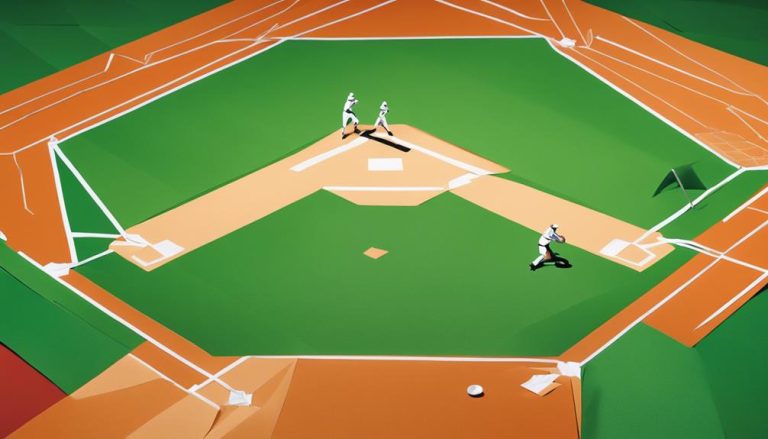General Rules of Sports Table Football
Like a chess game played with swift flicks and precise moves, understanding the general rules of sports table football can elevate your gameplay to a strategic level. From the equipment required to the intricate serving techniques, each aspect contributes to the dynamic nature of the game. Let's delve into the intricacies of the rules that govern this tabletop sport and uncover the key strategies that can lead you to victory.
Equipment Needed
When setting up to play sports table football, you will need a few essential pieces of equipment to ensure a smooth and enjoyable game. The first thing to consider is the table size. Standard sports table football tables are typically about 4 feet long and 2 feet wide, providing enough space for competitive gameplay. Make sure the table is sturdy and level to avoid any disruptions during your matches.
Next, the type of ball you use can greatly impact your game. A smooth, round ball is ideal for fast-paced play, allowing for quick passes and shots. Avoid using balls that are too heavy or too light, as they can affect the overall experience.
Understanding player positions and strategies is crucial for success in sports table football. Each player controls four rows of figures, with different formations and strategies to employ. Experiment with positioning your players strategically to defend well and score goals effectively. Remember, mastering player positions and strategies takes practice, so keep playing and honing your skills.
Setting up the Game
To set up the game of sports table football, begin by ensuring that the table is sturdy and level for optimal gameplay experience. A stable playing surface is crucial for fair matches and accurate shots. Once the table is set, each player should pick their preferred team and place them on the rods. Make sure the ball is clean and in good condition before starting.
Game strategies play a vital role in sports table football. Practice techniques such as ball control, passing, and shooting are essential for improving your skills. Experiment with different formations to find what works best for your playing style. Remember, practice makes perfect, and the more you play, the better you'll become.
As you set up the game, consider your opponent's strengths and weaknesses. Adjust your strategies accordingly to gain an advantage during gameplay. By focusing on both individual skills and team tactics, you can enhance your overall performance on the table. Good luck and have fun!
Serving the Ball
Before you initiate the gameplay, mastering the art of serving the ball in sports table football is crucial for gaining an early advantage and setting the tone for the match. When serving the ball, focus on precise ball placement and a controlled serving technique. Aim to place the ball strategically on your opponent's side to limit their options and create opportunities for yourself.
To excel at serving, consider various serve strategies to keep your opponent guessing. You can opt for a short, quick serve to catch them off guard or a deep, powerful serve to put pressure on their defense. Experiment with different angles and spins to enhance your ball control and make it challenging for your opponent to anticipate your moves.
Playing the Game
Alright, let's get into the heart of the game – the points. Understanding the game setup basics is crucial to gaining points effectively. Scoring and winning require strategic gameplay and quick thinking to outsmart your opponent.
Game Setup Basics
When setting up your sports table football game, ensure that all players are familiar with the rules and ready to have a fun and competitive match. To start the game successfully, follow these steps:
- Positioning Players: Place your players strategically on the rods based on your game strategy. Typically, you'll have defenders, midfielders, and strikers in different positions.
- Adjusting Player Grips: Ensure each player grip is secure and not loose on the rods, allowing for precise movements during the game.
- Checking Ball Condition: Verify that the ball is in good condition, not damaged, and suitable for a fair game.
- Setting Score Counters: Make sure the score counters are at zero before kick-off to keep track accurately throughout the game.
Enjoy the game and may the best player win!
Scoring and Winning
As you maneuver your players on the rods, scoring and ultimately winning in sports table football require strategic gameplay and precise ball control. To enhance your gameplay, consider incorporating the following winning strategies and scoring techniques:
| Winning Strategies | Scoring Techniques | Game Flow Tips |
|---|---|---|
| Focus on ball control | Master the bank shot | Stay flexible in rod positioning |
| Utilize quick passes | Practice ball-spinning | Adapt quickly to your opponent's moves |
| Maintain defensive pressure | Aim for the corners | Keep a calm and focused mindset |
Scoring System
Alright, let's talk about points in sports table football. The point system is crucial for determining the winner, so understanding it is key. From goal scoring rules to tiebreaker criteria, each point can make a difference in your game.
Point System Explanation
Exploring the scoring system in sports table football offers a deeper understanding of how points are earned during gameplay. Here's a breakdown to help you grasp the point system:
- Goal Scored: Each time you score a goal, you earn a point. This is the most straightforward way to accumulate points.
- Victory: Winning a match usually grants you additional points, encouraging strategic gameplay and enhancing the overall experience.
- Shutout Bonus: Keeping a clean sheet without conceding any goals can earn you extra points, rewarding solid defensive skills.
- Skill Shots: Some versions of the game offer extra points for scoring using advanced techniques or difficult shots, adding excitement to the scoring system.
Understanding these point-earning opportunities can elevate your game and lead to more thrilling goal celebrations.
Goal Scoring Rules
When aiming to score goals in sports table football, understanding the goal scoring rules is crucial for maximizing your point-earning opportunities. To enhance your gameplay, consider various shooting techniques and attacking tactics while being mindful of defensive strategies and goalkeeper positioning. Here is a breakdown of common goal scoring rules that can help you dominate the table:
| Goal Scoring Rules | Description |
|---|---|
| Regular Goal | Scores 1 point |
| Bank Shot Goal | Scores 2 points |
| Hat-Trick Goal | Scores 3 points |
Tiebreaker Criteria
To determine the winner in sports table football matches that end in a tie, the tiebreaker criteria within the scoring system come into play, adding an extra layer of excitement and strategy to the game. Here are four fair play strategies commonly used as tiebreakers:
- Goal Difference: The goal difference between the two teams is calculated by subtracting the goals conceded from the goals scored throughout the match.
- Head-to-Head Record: If teams are still tied after goal difference, the winner is determined by their results against each other during the competition.
- Goals Scored: The total number of goals scored by each team in the match is considered to break the tie.
- Fair Play Points: In some cases, fair play points such as the number of cards received during the match can be used as a tiebreaker.
Fouls and Penalties
In sports table football, players must be mindful of committing fouls and penalties as they can result in significant consequences during gameplay. Player conduct is crucial in maintaining a fair and enjoyable match. Refrain from aggressive behavior such as spinning rods excessively, slamming the rods, or distracting your opponent. These actions can lead to disciplinary actions by the referee, including warnings, point deductions, or even disqualification from the game.
Referee decisions play a pivotal role in enforcing the rules and ensuring fair play. It is essential to respect the referee's calls and avoid disputing them excessively. Game interruptions due to fouls or penalties can disrupt the flow of the match, affecting the momentum and focus of both players. To prevent unnecessary stoppages, familiarize yourself with the rules and practice good sportsmanship throughout the game.
Time Limits
As you progress through a match of sports table football, adhering to specific time limits becomes a critical aspect of maintaining the pace and intensity of the game. Here are some essential points to keep in mind regarding time limits:
- Skill Development: Time limits challenge you to think and act quickly, honing your decision-making abilities under pressure. This constant need to react swiftly contributes to your overall skill development on the table.
- Strategy Implementation: Limited time pushes you to execute your strategies efficiently. It forces you to adapt your gameplay in real-time, testing your ability to implement tactics effectively within a constrained timeframe.
- Competition Dynamics: Time limits add an element of urgency to the game, altering the flow and dynamics of competition. They introduce a sense of excitement and intensity, keeping you engaged throughout the match.
- Player Interactions: The time constraints encourage more interactions between players, fostering a dynamic environment where each move can have a significant impact. Quick exchanges and reactions between opponents make the game more engaging and unpredictable.
Substitutions and Timeouts
Considering the dynamic nature of sports table football, understanding the rules and strategies surrounding substitutions and timeouts is crucial for optimizing team performance and strategic gameplay. When it comes to substitution strategies, it's essential to consider factors like player fatigue, skill sets, and tactical needs. Making timely and effective substitutions can inject fresh energy into your team and disrupt your opponent's game plan. Keep a balance between defensive and offensive players on the field to adapt to different situations as they unfold.
Timeout rules in sports table football are strategic tools that allow teams to regroup, discuss tactics, and catch a breather. Each team usually has a limited number of timeouts per game, so it's vital to use them wisely. Timeouts can be a game-changer, providing an opportunity to analyze the opponent's strategy, make necessary adjustments, and boost team morale. Remember, timeouts are not just for resting; they are for recalibrating your approach and seizing momentum when needed. Mastering the art of substitutions and timeouts can give you a competitive edge and lead your team to victory.
Determining the Winner
Determining the winner in sports table football relies on a combination of skill, strategy, and adaptability throughout the game. As the match progresses, it's essential to stay focused and implement effective tactics to secure victory. Here are some key points to consider when aiming for success:
- Player Strategies: Each player must develop their unique style of play, combining offensive moves with solid defense. Adapting strategies based on the opponent's gameplay can give you a significant advantage.
- Fair Play: Maintaining a sense of fairness and honesty during the game is crucial. Respecting the rules and your opponent creates a positive environment for everyone involved.
- Overtime Rules: In the event of a tie, overtime rules come into play to determine the ultimate winner. Stay composed and use your skills wisely during this critical phase.
- Sportsmanship Etiquette: Win or lose, displaying good sportsmanship is essential. Congratulate your opponent on a well-played game and learn from the experience to improve your own skills.
Frequently Asked Questions
Can Players Customize Their Table Football Players With Different Colors or Accessories?
Yes, you can customize your table football players with different team colors, accessories, and personalized designs. It's a fun way to express your style and make your players stand out on the field.
Are There Any Specific Strategies or Tactics That Experienced Players Use in Table Football?
When playing table football, you'll find that experienced players often rely on advanced techniques and defensive strategies to outsmart their opponents. By mastering these tactics, you can elevate your game and dominate the table!
What Are Some Common Injuries or Safety Concerns Associated With Playing Table Football?
When playing table football, common injuries like wrist strains and finger sprains can occur. Safety concerns include hitting your hand on the rods or getting poked by the edges of the table. Stay cautious!
Is There a Professional Table Football League or Competitive Circuit That Players Can Participate In?
In the world of table football, you'll find professional leagues and tournaments where players showcase their skills. Engage in intense training techniques to level up your game and participate in competitive circuits.
How Does Weather or Environmental Factors Like Humidity Affect the Gameplay of Table Football?
When it comes to table football, weather can be a game-changer. Temperature affects table friction, impacting gameplay speed. Skilled players adapt well, adjusting their strategies to different conditions. Various table types can also influence how player positions and game dynamics unfold.






